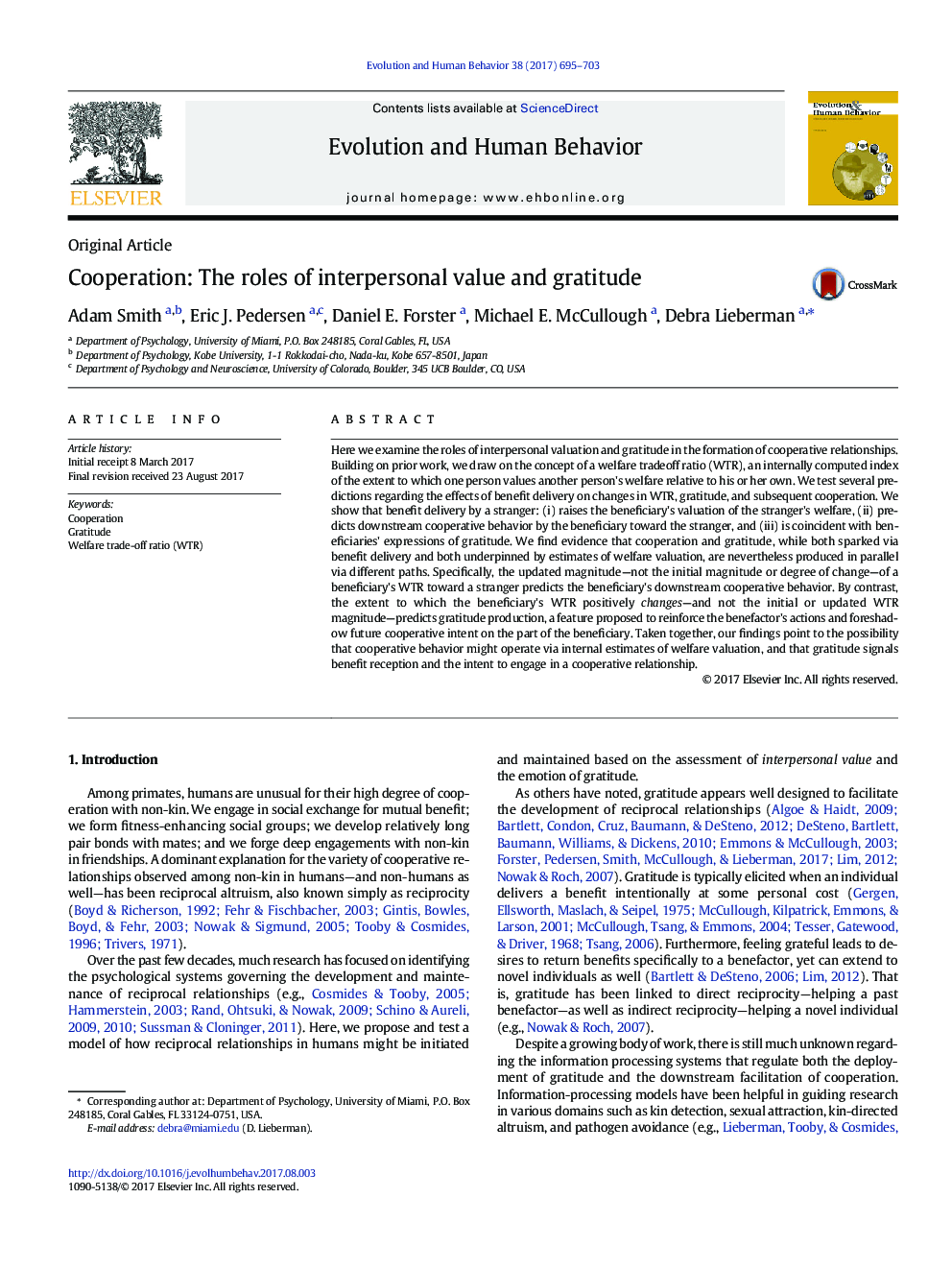| Article ID | Journal | Published Year | Pages | File Type |
|---|---|---|---|---|
| 5044752 | Evolution and Human Behavior | 2017 | 9 Pages |
Here we examine the roles of interpersonal valuation and gratitude in the formation of cooperative relationships. Building on prior work, we draw on the concept of a welfare tradeoff ratio (WTR), an internally computed index of the extent to which one person values another person's welfare relative to his or her own. We test several predictions regarding the effects of benefit delivery on changes in WTR, gratitude, and subsequent cooperation. We show that benefit delivery by a stranger: (i) raises the beneficiary's valuation of the stranger's welfare, (ii) predicts downstream cooperative behavior by the beneficiary toward the stranger, and (iii) is coincident with beneficiaries' expressions of gratitude. We find evidence that cooperation and gratitude, while both sparked via benefit delivery and both underpinned by estimates of welfare valuation, are nevertheless produced in parallel via different paths. Specifically, the updated magnitude-not the initial magnitude or degree of change-of a beneficiary's WTR toward a stranger predicts the beneficiary's downstream cooperative behavior. By contrast, the extent to which the beneficiary's WTR positively changes-and not the initial or updated WTR magnitude-predicts gratitude production, a feature proposed to reinforce the benefactor's actions and foreshadow future cooperative intent on the part of the beneficiary. Taken together, our findings point to the possibility that cooperative behavior might operate via internal estimates of welfare valuation, and that gratitude signals benefit reception and the intent to engage in a cooperative relationship.
